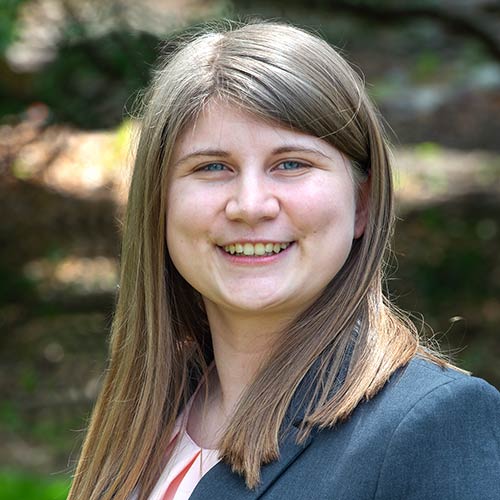McNair Scholar 2023 Zoe Karwowski
Zoe Karwowski is a senior at the University of Minnesota - Twin Cities, majoring in Biology with a minor in Computational Biology. Her research interests include population macro-ecology, ecosystem-scale models, and conservation science. She has previous experience in computational microbiology and plant biology research projects.

My dream is to inspire and become a mentor to the next generation of scientists in computational biology and ecology. ‘Some days you show up for yourself, some days you show up for the person next to you.’ - David Hellstrom
Research project
Disease Ecology of Apennine Wolves in Maiella National Park
Abstract: Infectious diseases in wildlife populations are becoming an increasing concern in conservation due to their ability to act alone or in combination with other factors. Canine Distemper Virus (CDV) has been destroying native wolf populations throughout Europe and future outbreaks of CDV are expected to occur. Maiella National Park (MNP), located in South-Central Italy, is at particular risk because it has a large feral dog population, and nearby parks have had outbreaks. For this project, QGIS was used to visualize the movement of wolves in the park using location and activity data provided by MNP. Additionally, a social network and susceptible-infected-recovered (SIR) model was developed using Program R to predict the spread of CDV in MNP wolves. These models will provide crucial insight into the disease dynamics of the wolf population in the park and help MNP with its conservation and management efforts. Further, visualizations of our project results will be utilized by MNP to educate park visitors.
Faculty mentor
James Forester is an Associate Professor in the Fisheries, Wildlife, and Conservation Biology Department at the University of Minnesota. Dr. Forester received his Ph.D. from the University of Wisconsin - Madison. He is a quantitative landscape ecologist, with a focus on mammals and how they respond to changing landscapes. Dr. Forester has published in multiple scientific research journals and has presented his work at conferences worldwide. Some of his hobbies include fly fishing, paddling, woodworking with hand tools, and being a ham radio operator. This is Dr. Forester’s first year as a McNair faculty mentor.